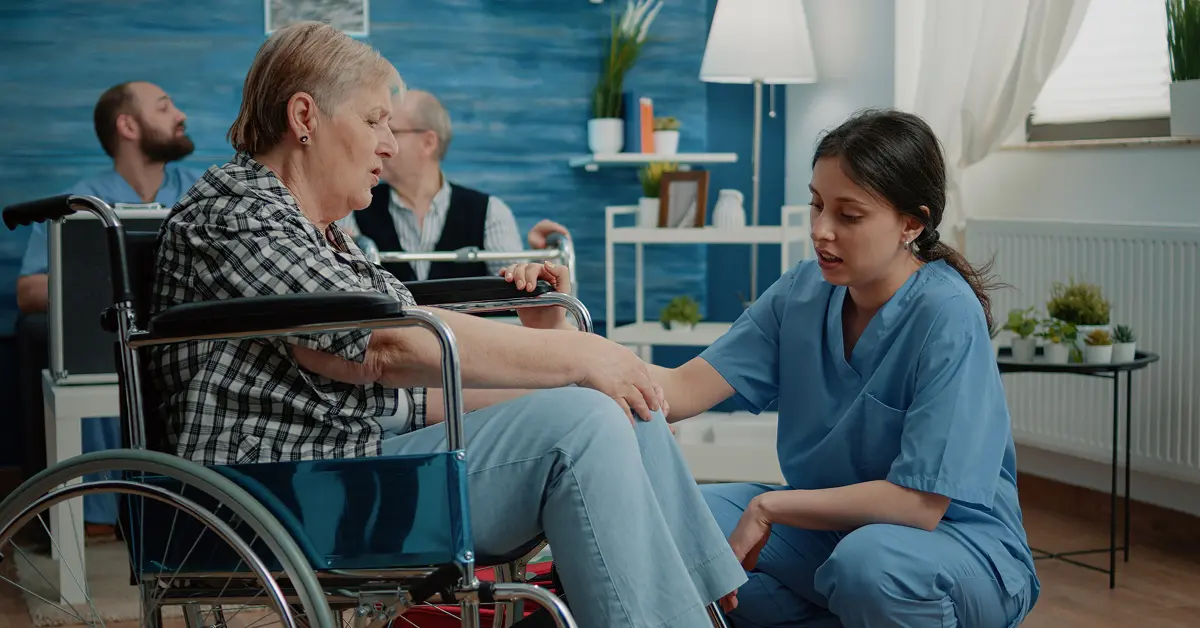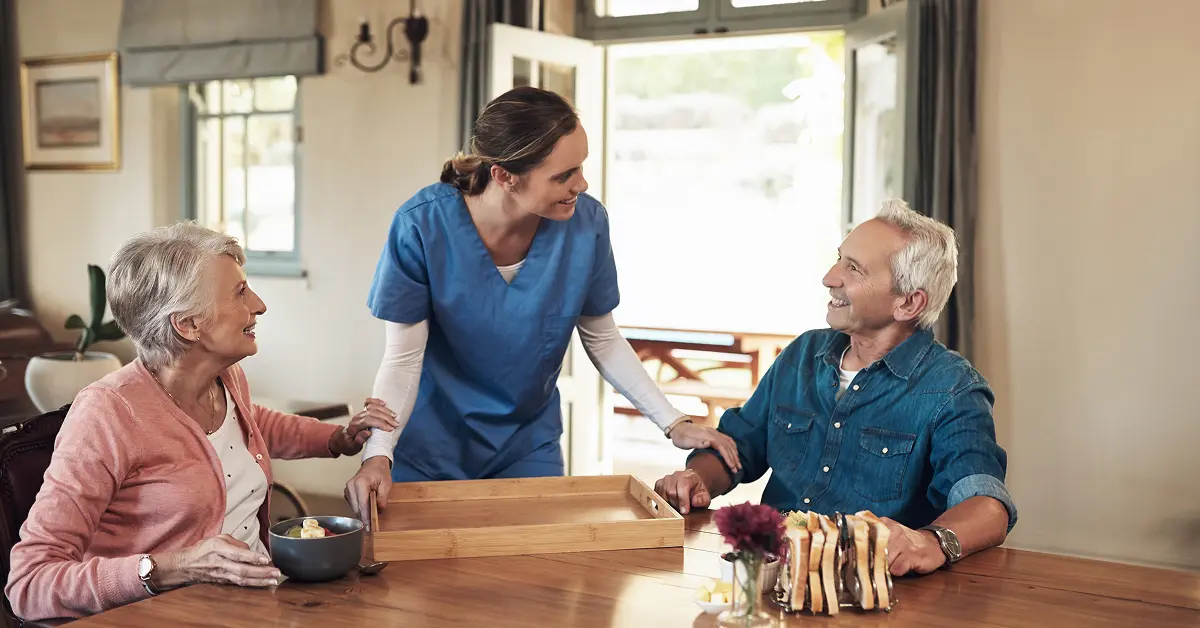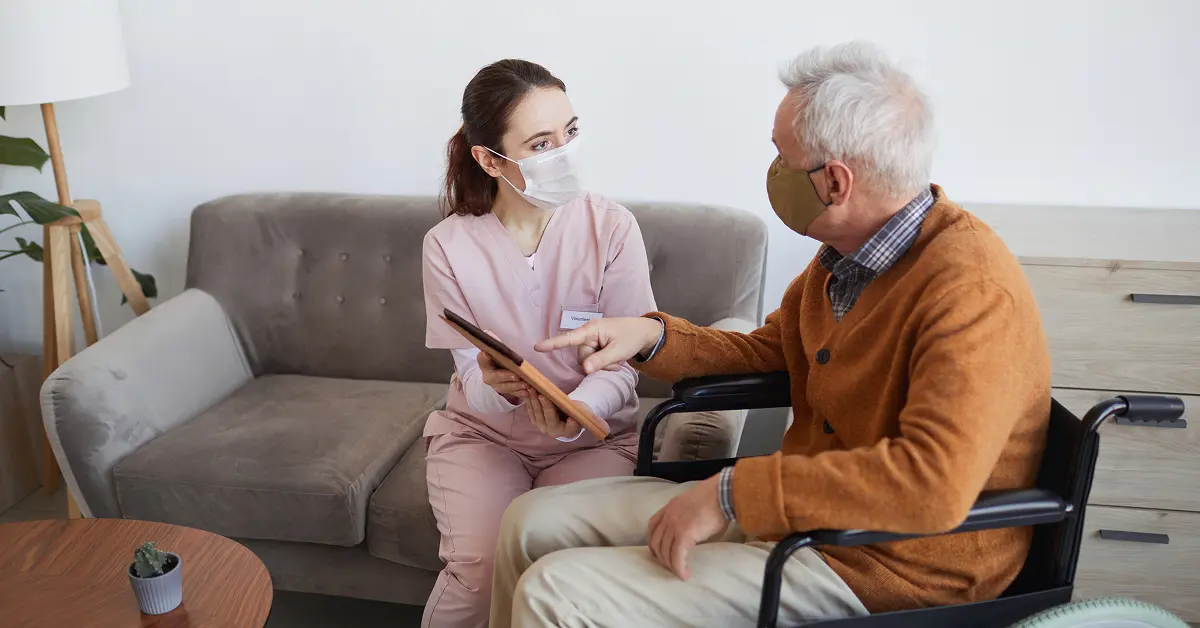India's ageing population is growing rapidly, and so is the need to support elderly individuals in maintaining their independence. For many seniors, staying in their own homes brings immense emotional comfort, dignity, and a sense of control. But as health and mobility challenges arise, they often need some form of assistance. This is where home caregivers step in—not to take over lives but to empower seniors to live them fully and independently.
In this blog post, we’ll explore how trained Best Caregiver Services at Home in India are making it possible for elderly individuals to lead safe, independent, and fulfilling lives right from the comfort of their own homes.
Why Independence Matters to Seniors
Independence is not just about being physically able. For seniors, it means:
- Making decisions without constant supervision
- Maintaining daily routines and social connections
- Having a sense of purpose and control over their environment
- Preserving self-respect and dignity
Loss of independence can lead to depression, anxiety, and even faster cognitive decline. It can feel like a loss of identity. Therefore, supporting elderly people to stay autonomous is not a luxury—it’s a necessity.
What Is Home Caregiving?

Home caregiving involves trained professionals assisting seniors with daily tasks and health-related needs in their own homes. The support may range from a few hours a day to 24/7 care, depending on the individual’s condition.
Services typically include:
- Assistance with bathing, dressing, grooming
- Medication management
- Mobility support
- Cooking and feeding
- Housekeeping
- Companionship and emotional care
- Post-hospitalisation and chronic illness care
Promoting Independence Through Personalised Support
Every senior’s needs are unique. Home caregivers design custom care plans that ensure support is given only where needed. For instance:
- If a senior can cook but has trouble with groceries, the caregiver assists with shopping, not cooking.
- If the individual can manage personal hygiene but forgets to take medicines, caregivers focus on medication reminders.
This targeted support ensures seniors remain in control of their own lives.
Maintaining a Safe Home Environment
Safety is crucial for elderly individuals. Slips, falls, and accidents are among the most common reasons for hospitalisation in Indian seniors. Home caregivers help minimise these risks by:
- Clearing clutter and securing rugs
- Assisting with walking or using mobility aids
- Monitoring for signs of weakness or confusion
- Managing safe storage of medications and sharp objects
By doing this, they enable seniors to safely navigate their homes, enhancing confidence and reducing the need for institutional care.
Encouraging Physical and Mental Activity
Staying active is essential for maintaining independence. Home caregivers:
- Encourage seniors to do simple exercises
- Accompany them on walks
- Support participation in hobbies like gardening, bhajans, reading, or art
- Engage them in conversation and mental games to stimulate memory
In many Indian households, elders can feel isolated as younger family members are away at work. Caregivers fill the emotional gap, keeping seniors engaged and mentally active.
Supporting Health Without Hospital Visits
Frequent travel to clinics can be stressful for elderly patients. Home caregivers are trained to:
- Monitor blood pressure, sugar levels, and other vital signs
- Help manage chronic conditions like diabetes, arthritis, or post-stroke recovery
- Coordinate with doctors and physiotherapists for home visits
- Prevent hospital readmissions by following proper recovery protocols
This medical support at home preserves independence by reducing the need for long stays at hospitals or nursing homes.
Respecting Cultural and Emotional Needs
Indian seniors have strong cultural values and preferences. Home caregivers from local backgrounds understand:
- Dietary restrictions based on region or religion
- Prayer routines and puja timings
- Traditional preferences in dressing and living habits
This cultural sensitivity makes seniors feel respected and understood. It reassures them that their way of life will continue, even if help is required.
Easing the Burden on Family Without Removing Control
Adult children often struggle between caregiving and work responsibilities. With trained home caregivers, they can:
- Get professional help for tasks they cannot manage
- Focus on emotional bonding rather than physical caregiving
- Avoid burnout and health issues themselves
At the same time, seniors feel they are not a burden, and their decisions still matter. This balance supports both emotional health and family unity.
Enabling End-of-Life Dignity at Home
When facing terminal illness, many elderly people wish to spend their final days at home. Home caregivers trained in palliative care ensure:
- Pain management
- Emotional and spiritual support
- Cleanliness and comfort
- Support for the family
They preserve dignity in life’s final stages without hospitalisation, honouring the senior’s wishes.
Real Stories from Indian Families
Mrs. Sushma Reddy from Hyderabad hired a home caregiver for her 78-year-old mother recovering from hip surgery. “The caregiver helped with walking practice and medication, but my mother still cooked her tea every morning. She felt in control, and that made all the difference,” she says.
Mr. Arvind Singh from Delhi says, “My father didn’t want to move to an old age home. With the help of a caregiver, he still reads his newspaper, takes evening walks, and even supervises our family cook!”
These stories highlight how home caregivers don’t replace independence—they enable it.
Choosing the Right Home Caregiver in India
When looking for a caregiver for your elderly loved one, ensure:
- The caregiver is certified and trained in elderly care
- They are background-verified for safety
- They have experience handling medical conditions, if applicable
- You discuss daily routines and preferences with them clearly
In India, many reputable agencies offer trained and culturally compatible caregivers, helping families provide dignified support to ageing parents.
Conclusion
Senior independence is a deeply valued goal—one that fosters dignity, health, and happiness. Home caregivers act as enablers, not controllers, allowing seniors to live on their terms while staying safe and supported.
In India’s changing social landscape, where nuclear families and urban lifestyles leave seniors more vulnerable, home caregiving offers a powerful solution. It bridges the gap between full autonomy and total dependence, giving our elders the gift of freedom, in the comfort of their own homes.
Because growing old should never mean growing helpless.
Contents
- Why Independence Matters to Seniors
- What Is Home Caregiving?
- Promoting Independence Through Personalised Support
- Maintaining a Safe Home Environment
- Encouraging Physical and Mental Activity
- Supporting Health Without Hospital Visits
- Respecting Cultural and Emotional Needs
- Easing the Burden on Family Without Removing Control
- Enabling End-of-Life Dignity at Home
- Real Stories from Indian Families
- Choosing the Right Home Caregiver in India
- Conclusion
Our 24*7 services
Latest Posts
- What Is Respite Care and Why Is It Important
- Affordable home care for senior citizens in India
- Caring for Seniors with Dementia or Alzheimer's at Home
- Senior Caregiving A Guide for Every Family
- How to Write a Caregiver Resume That Gets You Hired
- How Care After Hospital Discharge Speeds Up Recovery at Home
- How to Get Home Health Care for Seniors Through Medicare
- What Does a Senior Citizen Caregiver Really Do at Home
- How to Care for Elderly Parents with Alzheimer’s or Dementia
- How to Get 24-Hour Care for Seniors at Home



